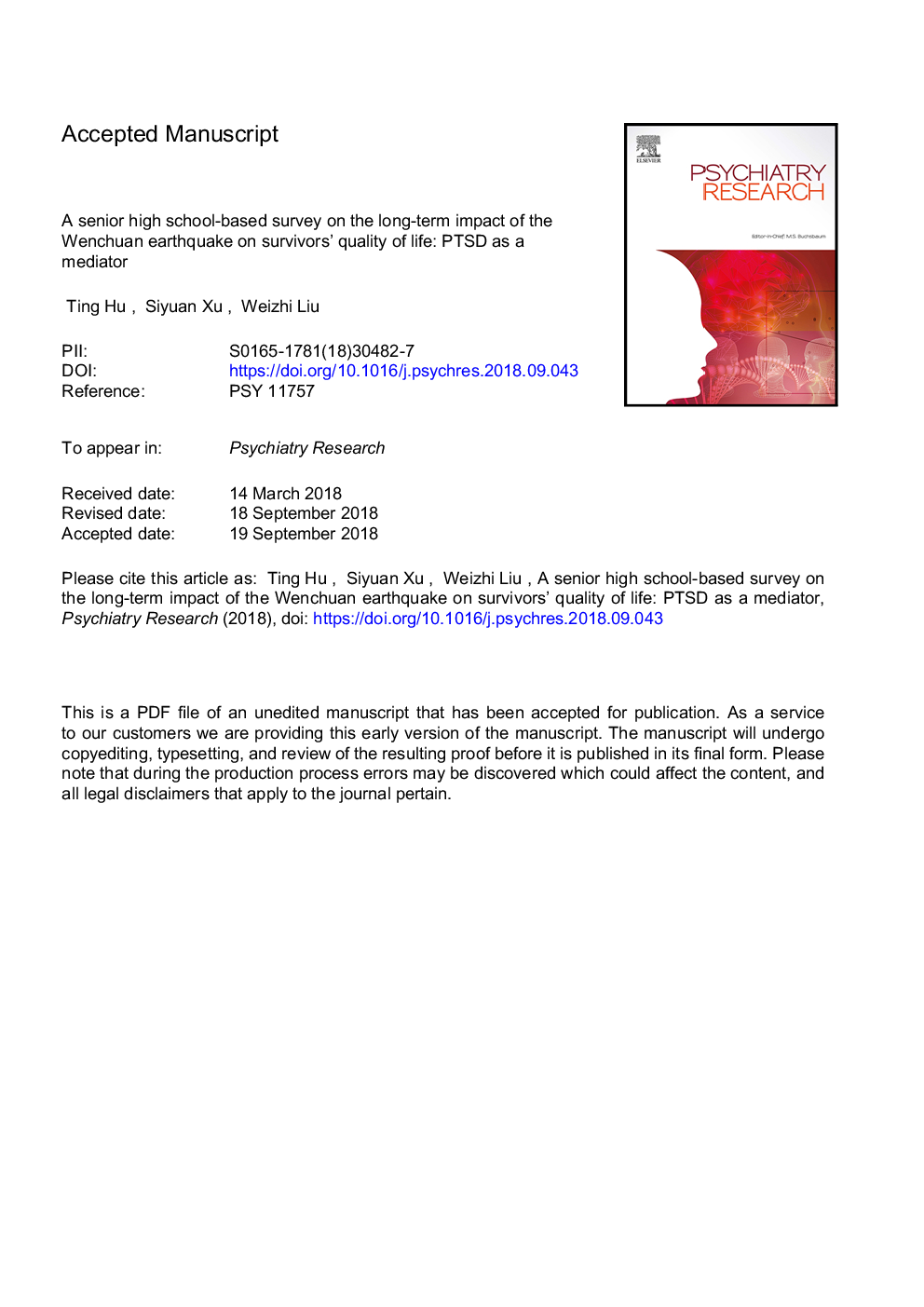| Article ID | Journal | Published Year | Pages | File Type |
|---|---|---|---|---|
| 11024092 | Psychiatry Research | 2018 | 28 Pages |
Abstract
Previous earthquake-related studies mostly focused on the prevalence and risk factors of post-traumatic stress disorder (PTSD), and there are only a few articles on the subsequent long-term outcomes of earthquakes. This study aimed to investigate the long-term impact of the Wenchuan earthquake on the quality of life (QOL) of surviving senior high school students 2-3 years post-disaster and to clarify whether PTSD was a mediator in the relationship of earthquake-related exposure and QOL. The study collected 1031 survivors' self-report questionnaires on socio-demographic data, earthquake-related experiences, PTSD symptoms (PCL-C), and QOL (WHOQOL-BREF). The results showed that earthquake-related exposure experiences were negatively associated with QOL scores, and the severity of PTSD symptoms was significantly and negatively related to QOL scores. Structural equation model (SEM) analysis showed that earthquake-related exposure was directly related to the severity of PTSD symptoms, while insignificantly directly related to QOL. Therefore, earthquake-related exposure was indirectly related to QOL (totally mediated by severity of PTSD symptoms). PTSD was a mediator in the relationship between earthquake-related exposure and QOL among adolescents: earthquake-related exposure affected the survivors' QOL mainly mediated by the PTSD symptoms that developed. Therefore, to improve the QOL of the survivors after an earthquake, more attention should be paid to survivors who have PTSD symptoms.
Related Topics
Life Sciences
Neuroscience
Biological Psychiatry
Authors
Ting Hu, Siyuan Xu, Weizhi Liu,
